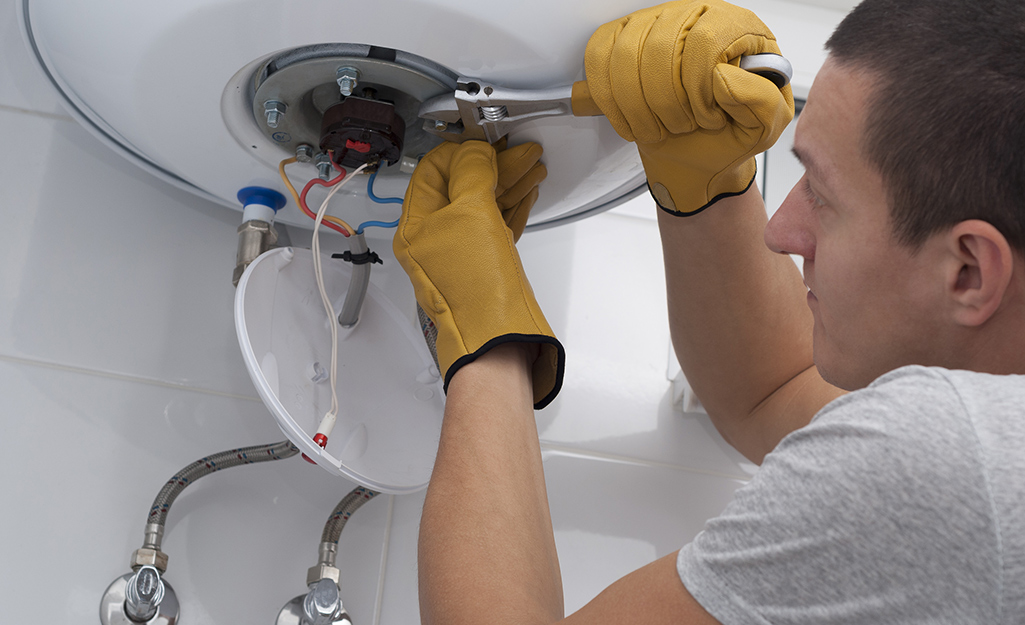Responding to the Standard Water Heater Crisis Scenarios
Responding to the Standard Water Heater Crisis Scenarios
Blog Article
How do you actually feel when it comes to The Importance of Water Heater Maintenance?

A hot water heater is among one of the most essential fundamental home appliances that can be found in a home. With hot water heater, you do not require to experience the tension of heating water manually every single time there is a demand to wash, wash, or the recipes. Nevertheless, there is constantly an opportunity that your hot water heater would act up similar to many mechanical devices.
It is very important to note any kind of little breakdown and also tackle it quickly before things get out of hand. A lot of times, your water heater starts to malfunction when there is an accumulation of sediments as a result of continuous use. As a safety measure, periodic flushing of your water heater is advised to prevent sediment accumulation and stop useful failing.
Common water heater emergencies and also just how to take care of them
Leaky hot water heater container.
In this scenario, you should turn off your water heater, allow it to cool down, as well as meticulously look for the source of the problem. At times, all you require to do is to tighten a few screws or pipeline connections in cases of small leaks. If this doesn't work as well as the leak lingers, you may require to employ the solutions of a technician for a proper substitute.
Rising and fall water temperature level.
Your water heater might begin producing water of different temperatures normally ice chilly or hot warm. In this situation, the first thing you do is to guarantee that the temperature level is set to the preferred level. If after doing this, the water temperature level keeps changing during showers or other activities, you may have a faulty thermostat. There may be a need to change either the thermostat or the home heating unit of your water heater.
Insufficient warm water
It might be that the water heater can't sustain the warm water need for your apartment. You might upgrade your water heater to one with a bigger capacity.
Blemished or stinky water
When this occurs, you need to recognize if the issue is from the tank or the water source. If there is no funny smell when you run cold water, after that you are certain that it is your water heater that is defective. The stinky water can be caused by corrosion or the accumulation of microorganisms or sediments in the water heater tank.
Final thought
Some house owners overlook little caution and also minor faults in their hot water heater system. This only leads to further damages as well as a feasible total break down of your device. You ought to manage your hot water heater faults as quickly as they come up to avoid more expenditures and unneeded emergency difficulties.
With water heating units, you don't need to go with the anxiety of heating water manually every time there is a demand to take a bathroom, do the laundry, or the meals. Your water heating system can start generating water of various temperature levels usually ice scalding or cool hot. It might be that the water heating system can't support the hot water demand for your house. If there is no amusing smell when you run cool water, after that you are particular that it is your water heating unit that is defective. The stinky water can be created by rust or the accumulation of bacteria or sediments in the water heater tank.
Common Water Heater Issues and What You Should Do
What Type of Water Heater Do You Have?
Before we begin it’s first important that you identify the type of water heater you have on your property. There are two main types of water heaters out there: conventional and high efficiency.
Both of these types of products typically use either gas or electricity to heat power. There are also solar water heaters that use a thermal collector on the roof or yard to heat the water.
While these models are not as common, they can cut heating costs in half. In this article, we will focus on conventional and high efficiency.
How Do My Electric and Gas Water Heater Work?
Though they look similar, electric and gas water heaters work very differently. It’s important to know their basic function because often problems can be specific to the heating source.
In the electric model, a thermostat on the side of the machine detects the temperature of the water in the tank. When the temperature needs to rise electricity flows to a heating element suspended in the water.
Gas models also use a thermostat device — typically with a mercury sensor at the tip and an additional sensor called a thermocouple. The thermocouple detects whether the pilot light is on and controls the flow of gas.
When the thermostat drops below the appropriate level gas is released which becomes ignited by the pilot light. The flame heats the bottom of the water tank which causes hot water to rise and cold water to drop.
This natural circulation continues until the water reaches the desired temperature. Then, the thermostat triggers the gas control valve to shut off the flow of gas.
What Are the Most Common Issues and How Do You Fix Them?
https://happyhiller.com/blog/common-water-heater-issues-and-what-you-should-do/

I stumbled upon that review on Common Hot Water Heater Problems while doing a lookup on the web. Appreciated our entry? Please share it. Help others discover it. We appreciate reading our article about Is Your Water Heater Leaking?.
Immediate relief? Contact. Report this page